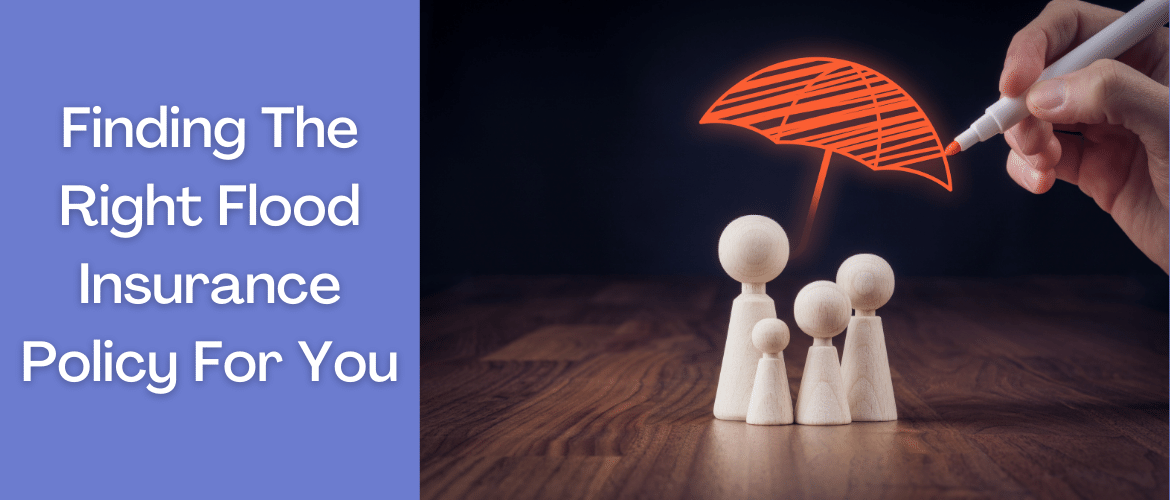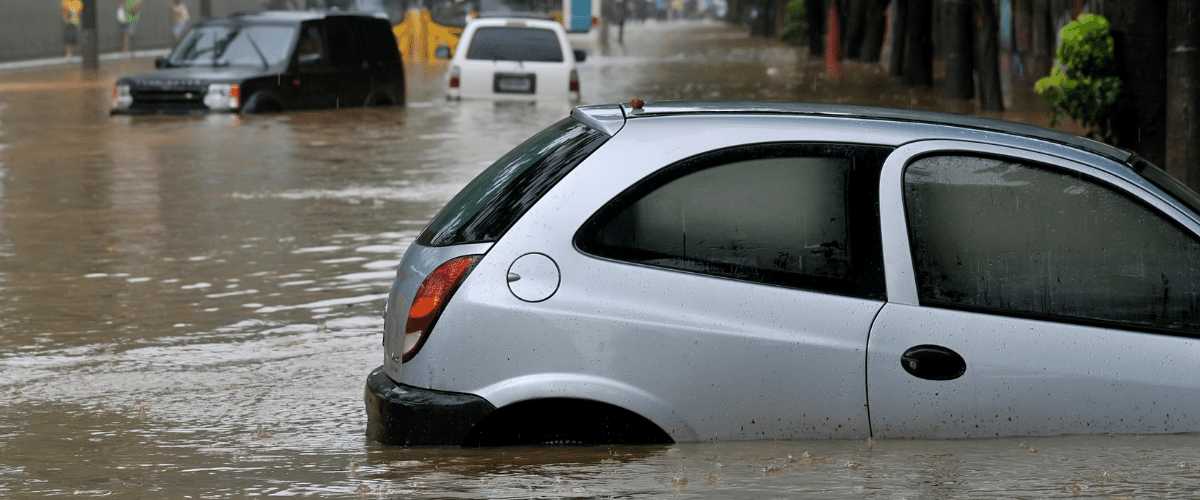
Many areas throughout Mississippi are extremely vulnerable to floods. Heavy rains, hurricanes, inadequate levee systems, problems with drainage systems and equipment, pump failures, flash floods, and areas known for historic flooding such as along the coastline and in the South Delta Region, are “too common” events. The damage from flooding can be drastic, many times including both emotional and financial devastation. Recent studies show that only 3% of Mississippians have flood insurance, with low-income households tending to be hit hardest, as only 1 out of 4 low incomes homes in high-risk areas have flood insurance. The reason low-income homes are under-insured or even completely uninsured could be that the cost of flood insurance is higher than the homeowner’s income. In addition, low-income households often have difficulty accessing lower interest rate loans, making it harder for them to afford the additional cost of flood insurance.
With the NFIPs (the National Flood Insurance Program) Risk Rating 2.0 (RR 2.0) now being fully in effect, many home and property owners wonder where they stand, and if they can afford flood insurance at all. With the single most important risk rating factor for flood insurance being “proximity to a flooding source”, homes near levees, rivers, low bodies of water, and coastlines could have much higher rates than in previous years. To not have flood insurance means you must pay out of pocket for repairs or to replace lost or damaged items yourself, out of pocket.
For homeowners who have flood insurance, it becomes easier and faster to recover. But not everyone knows that regular homeowner’s insurance does not include flood damage. Flood insurance must be purchased separately, either directly from the federal government, or through private insurers like your regular homeowner’s insurance agency. Flood insurance is available to home and condo owners, renters, and business owners.
Should I Have Flood Insurance?
Many areas throughout the state are known to be high-risk flood areas. For homeowners living in Special Flood Hazard areas with a mortgage, odds are your lender will require you to purchase flood insurance. Even if you live in what you believe to be a safe area, there are plenty of reasons why most home and business owners should have flood insurance.
- Flash floods can and do happen. Everywhere in the United States.
- Twenty percent of all claims and one-third of all flood disaster relief assistance go to people outside of high-risk areas.
- Most standard insurance policies don’t cover floods. It’s not included with homeowners insurance, renter’s insurance, condo/townhome insurance, or business insurance.
- Just an inch of water can cause thousands to tens of thousands of dollars in damage.
- New real estate developments can impact flooding by increasing physical barriers to the ground (ie roads, concrete, etc) by physically covering more of the ground space that would have been available to soak in excess water.
- Don’t rely on Federal disaster funds. Federal aid is only available by a presidential disaster declaration. Only the president can declare a disaster for federal disaster relief. FEMA offers disaster relief grants that do not require repayment but only average at about $5000 per household.
- Don’t think you are safe if you live close to a levee. Levee failures account for one of the top causes of disaster flooding.
Other valuable reasons for having homeowners and business flood insurance is the coverage for leaks, burst pipes, freezes, and even snowmelt. Most home and business owners should consider purchasing flood insurance if they don’t already have it.
Research shows that people are likely to buy flood insurance if they know a friend or neighbor is in the same situation. Social norms are another important factor in flood insurance purchasing. According to a survey of homeowners, discussions with friends and neighbors about the flood risk is the most important factor that prompts them to purchase insurance. Furthermore, homeowners may see the cost of flood insurance as an investment in their property value.
 Does It Rain And Flood A Lot In Mississippi?
Does It Rain And Flood A Lot In Mississippi?
Each year heavy rains that occur near water bodies cause flooding in some parts of the state. Routinely flooded are areas like the coastline and South Delta regions. Floodwaters. Having had many recent years of heavy rains, rainwater remains constantly backed up in the Yazoo Backwater Area. South Delta residents have suffered repeated years of flooding and property damage, most severely in 2019.
- The United States’ average annual rainfall is 38.6 inches
- Mississippi’s average annual rainfall is 55.9 inches
Flooding can happen with little to no warning. It can cause tremendous damage, personal injuries, and even death. We have the fifth largest floodplain in the country, and these areas are even more susceptible to floods. Following Katrina, FEMA made new maps that included enlarged flood zones for high-risk areas. Anyone owning a home in these special high-risk areas may be required to purchase flood insurance by their mortgage lender. If your lender requires flood insurance, you can either buy it directly from the Federal government, or from Fassbender Insurance Agency. Private insurance agencies have the ability to shop the third-party insurance market for flood policies that are sometimes thousands of dollars less expensive than government prices.
Many Mississippians Believe They Can’t Afford Flood Insurance.
While Federal flood insurance, offered through the NFIP (National Flood Insurance Program) averages nationally around $700 per year, rates can fluctuate wildly from one location to another. The NFIP maps flood risks by zones. Some are high risk, while others are moderate to low risk. The NFIP uses these zones to determine rates. And while historic pricing was based on designated risk areas, now with the advent of LiDAR technology, premiums can be based on the specific property address. In some cases, where your loan or mortgage is federally backed, your lender may require you to buy flood insurance, although in reality, less than half actually buy it. It is for this reason that we recommend having your Realtor provide you with all the flood-related disclosures before you buy the home, as having to pay additional flood insurance premiums over the life of the loan should be considered additional “costs of ownership” and should be hashed out before you buy the home.
For existing homes and businesses, here are a few other factors that play into your yearly premium price:
- Age of the home
- Size of the home
- Type of Construction of the home
- Elevation of the “first floor” of the property
- Coverage for construction value and contents
While high-risk zones may pay more in premiums than before, property owners in low to moderate-risk areas may actually save money. The cost of repairing flood damage far exceeds the cost of flood insurance premiums, so it makes sense that most homeowners in Mississippi would consider purchasing flood insurance.
What Is Covered By Flood Insurance?
Generally, flood insurance can cover two different things: damage to your property, and damage to your possessions – but two aren’t one and the same. Structural coverage will compensate you for damage to the property’s physical structure and foundation. It also covers some systems, such as electrical and plumbing, air conditioning and heating, and water heaters. Additionally, appliances, flooring, wall repair, attached add-ons, and built-ins are covered in the NFIP building coverage.
For your personal property, however, you’ll need “contents coverage”. This is an additional policy that covers the contents of your property. The cost for content coverage can range dramatically depending on the value of your personal property. For example, people that don’t own much, or don’t own many valuables, will have a lower premium than someone who owns expensive jewelry, artwork, designer clothes, electronics, computer equipment, and furniture, among other things. If you own a lot of expensive personal property, your premium will be higher than someone who doesn’t.
Additionally, renters can purchase flood insurance to cover the contents of their home. Renters also have the same coverage limits as regular homeowners.
 What Isn’t Covered By Flood Insurance?
What Isn’t Covered By Flood Insurance?
Flood insurance only covers damage that is the direct result of outdoor flooding. So, as an example, if the nearby river overflows and damages your house, flood insurance would apply. However, if you have a plumbing or sewer backup, flood insurance only covers it if it’s a direct result of a flood. If property damage is caused for any other reason, your homeowner’s insurance can and should apply. Consult with your local Mississippi Insurance Agency to review your homeowner’s policy and ensure you have the coverage you need.
Flood insurance does not cover:
- Water damage, including mold, related to another accidental or preventable event.
- Temporary relocation costs, including when the building is uninhabitable or under repair.
- Loss of business income.
- Landscape damage
- Exterior attachments such as porches and decks
- Wells and Septic systems
- Hot tubs and swimming pools.
Should I Work With An Insurance Agent?
While flood insurance is available through the NFIP, you can purchase it directly from (in most cases) the same insurance agent from which you get your homeowner’s insurance. But if you need to find a new insurance agency, you can search the NFIP website for insurers who sell NFIP policies… but you can also contact your trusted local insurance agent directly to see if he or she sells third-party flood insurance near me as an option. In some cases where the NFIP premiums are too high, it may be possible to get a lower price through a private insurer. For this reason, we recommend checking with an insurance agent who not only sells NFIP policies, but also sells third-party policies so you can get a quote on both. While you’re discussing the limits of coverage, this is also a great time to cross-check your homeowner’s policy and make sure that ALL water damage is covered one way or another. To help navigate the NFIP, to purchase or renew your flood insurance, and to help you understand how the new Risk Rating 2.0 affects you, Fassbender Insurance Agency is available to assist with all of your flood insurance needs.

